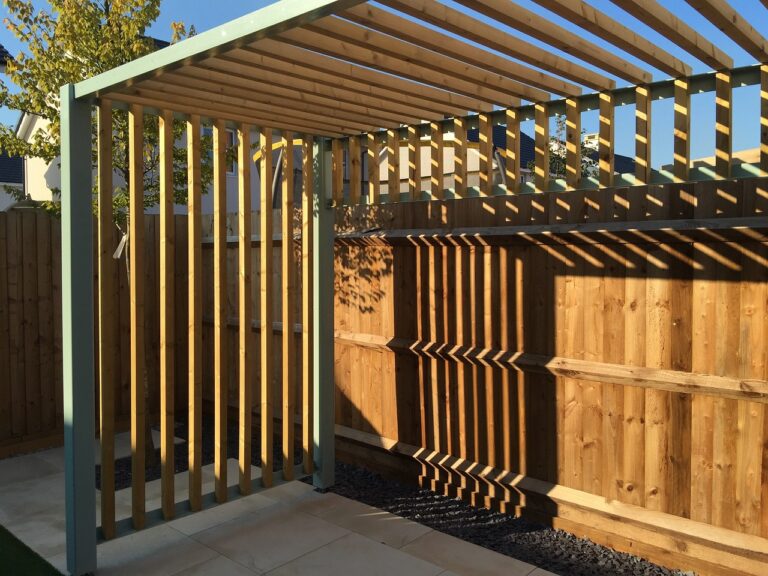Pergolas can make a great addition to any outdoor space – providing shade and a stylish aesthetic. But before you build, you must know the regulations for size. So, how large can a pergola be without council approval?
It depends on where you live, but usually, if your pergola is under 9 square meters, you don’t need permission. This can save you time and money.
Be sure to check with your local council or planning authority regarding their guidelines. They can tell you permitted size limits and other requirements.
Adhering to regulations is important for avoiding legal issues and for safety. Don’t miss out on your dream pergola by not getting approval. Investigate regulations and get professional advice if needed. Then, you can enjoy your stylish outdoor area – legally!
Understanding Council Approval
Council approval is an essential factor to consider when constructing a pergola. Be sure to understand the regulations of the local council. Here’s what you need to know:
- Size restrictions: Check the local council guidelines for the maximum size of structures that can be built without requiring approval. This includes height, floor area, and proximity to boundaries.
- Permitted development rights: Some structures may fall under permitted development rights, which means you don’t need approval. But this can depend on location, property type, and conservation areas.
- Near heritage sites: If your property is by a heritage site or conservation area, there may be extra regulations. Check with the local council and get any permissions needed.
Also, get accurate information on council approval. This can save time & money during your pergola construction process, according to DIY experts at Trusted Home Building.

Pergola Size Restrictions
Are you worried about the size regulations for your pergola? Let’s delve into the specifics set by local councils!
The table below reveals the max pergola size (in square meters) for some prominent councils:
| Council | Maximum Pergola Size (square meters) |
|---|---|
| City of London | 20 |
| City of Manchester | 15 |
| Borough of Cambridge | 12 |
| County of Surrey | 25 |
It’s vital to check your specific local council’s guidelines before you start construction. Restrictions can vary from one region to another, even within the same council.
So, stay informed and get ready to build your pergola!
Determining the Maximum Size
When constructing a pergola without council approval, there are specific size limitations to keep in mind. Here is a rundown of the factors that decide the maximum size:
| Height Restriction | Local council regulations determine the maximum height of your pergola. Make sure to check the rules to make sure you meet them. |
|---|---|
| Floor Area Limit | There can be constraints on the floor area of your pergola. Remember these restrictions before beginning. |
| Setback Requirements | Council regulations often require certain setbacks from boundaries and other structures. Make sure your pergola meets these guidelines. |
| Shade Cover Allowance | Some councils have limits on the amount of shade that a pergola can provide. Bear this factor in mind when deciding the size. |
Also, ensure that your pergola design is in line with any landscape or architectural guidelines in your area. To guarantee compliance, consult with an architect or builder.
By considering these factors and seeking professional advice, you can construct a pergola that is within size restrictions yet still offers a great outdoor space. Don’t forget to acquire the necessary permits or approvals before starting construction. Otherwise, you may be fined or have to remove the structure.
Create this outdoor addition with confidence, knowing that you have done your due diligence and followed all necessary guidelines for building within council regulations. Enjoy the process and unleash your creativity in designing a functional and attractive pergola for your outdoor oasis!
Alternative Options
Options to build a pergola without council approval:
- Consider a freestanding pergola. It’s seen as temporary and non-permanent, so approval may not be needed.
- Look into smaller sized pergolas. These have limits set by your local council – check the regulations.
- Finally, install a retractable or removable cover, not a permanent roof. This avoids council approval.
However, restrictions and guidelines may still apply. Consult your local council or get professional advice. Understand regulations and obtain necessary permits. This avoids future problems.
Conclusion
Summing up, the size of a pergola you can build without council approval depends on many aspects, like location, height, and how far away it is from boundaries. Research and follow local rules before beginning construction.
When constructing a pergola without council approval, remember to:
- Ask your local planning department about any height limits in your area. Some places may have limits on how high you can go without getting proper permission.
- Pay attention to the distance from boundaries when deciding the size. Make sure it doesn’t come onto other people’s property or break any setbacks set by authorities. This will avoid arguments with neighbors and stick to regulations.
- Think about the overall look of the structure on your property and its surroundings. Even if you don’t need official approval for a small pergola, it’s a good idea to get help from architects or designers who can make it look nice and enhance your outdoor space.
Frequently Asked Questions
1. How big can I build a pergola without council approval?
In the UK, you can generally build a pergola without council approval as long as it meets certain criteria. The maximum size usually allowed is 4 meters in height and covers an area of up to 30 square meters.
2. What if my pergola exceeds the size limit?
If your pergola exceeds the size limit set by the council, you will need to obtain planning permission before proceeding with the construction. Failure to do so may result in fines or having to dismantle the structure.
3. Are there any restrictions on the location of the pergola?
There may be restrictions on where you can build a pergola, especially if it obstructs views, infringes on your neighbor’s privacy, or affects the structural integrity of your property. It is advisable to check with your local council for any specific guidelines.
4. Do I need council approval for a pergola attached to my house?
If your pergola is attached to your house, it may be considered an extension and therefore require planning permission. It is best to consult with your local council to determine if approval is necessary before proceeding.
5. Can I build a pergola in a conservation area or listed property?
If you live in a conservation area or own a listed property, additional planning restrictions may apply. You will need to seek permission from your local council’s conservation officer or planning department before constructing a pergola to ensure compliance with conservation guidelines.
6. Are there any other factors to consider when building a pergola?
Aside from planning permission, you should also consider the pergola’s height, materials used, and its impact on neighboring properties. It is always a good idea to consult with professionals, such as architects or builders, to ensure compliance with regulations and avoid any future issues.
{
“@context”: “https://schema.org”,
“@type”: “FAQPage”,
“mainEntity”: [
{
“@type”: “Question”,
“name”: “How big can I build a pergola without council approval?”,
“acceptedAnswer”: {
“@type”: “Answer”,
“text”: “In the UK, you can generally build a pergola without council approval as long as it meets certain criteria. The maximum size usually allowed is 4 meters in height and covers an area of up to 30 square meters.”
}
},
{
“@type”: “Question”,
“name”: “What if my pergola exceeds the size limit?”,
“acceptedAnswer”: {
“@type”: “Answer”,
“text”: “If your pergola exceeds the size limit set by the council, you will need to obtain planning permission before proceeding with the construction. Failure to do so may result in fines or having to dismantle the structure.”
}
},
{
“@type”: “Question”,
“name”: “Are there any restrictions on the location of the pergola?”,
“acceptedAnswer”: {
“@type”: “Answer”,
“text”: “There may be restrictions on where you can build a pergola, especially if it obstructs views, infringes on your neighbor’s privacy, or affects the structural integrity of your property. It is advisable to check with your local council for any specific guidelines.”
}
},
{
“@type”: “Question”,
“name”: “Do I need council approval for a pergola attached to my house?”,
“acceptedAnswer”: {
“@type”: “Answer”,
“text”: “If your pergola is attached to your house, it may be considered an extension and therefore require planning permission. It is best to consult with your local council to determine if approval is necessary before proceeding.”
}
},
{
“@type”: “Question”,
“name”: “Can I build a pergola in a conservation area or listed property?”,
“acceptedAnswer”: {
“@type”: “Answer”,
“text”: “If you live in a conservation area or own a listed property, additional planning restrictions may apply. You will need to seek permission from your local council’s conservation officer or planning department before constructing a pergola to ensure compliance with conservation guidelines.”
}
},
{
“@type”: “Question”,
“name”: “Are there any other factors to consider when building a pergola?”,
“acceptedAnswer”: {
“@type”: “Answer”,
“text”: “Aside from planning permission, you should also consider the pergola’s height, materials used, and its impact on neighboring properties. It is always a good idea to consult with professionals, such as architects or builders, to ensure compliance with regulations and avoid any future issues.”
}
}
]
}








